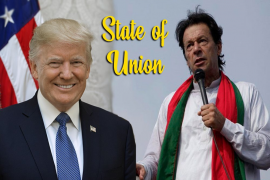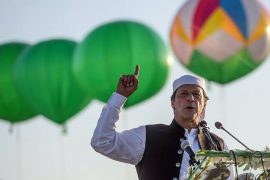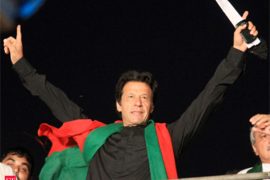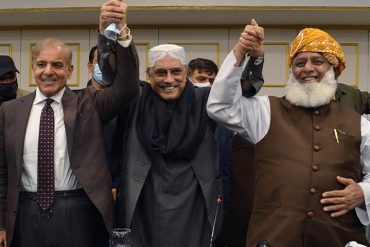It was the session of 1969/1970. Pakistan was in a political turmoil. President Ayub Khan was removed in March 1969. General Yahya Khan was in the saddle. Zulfiqar Ali Bhutto had emerged as the populist leader, the defender of the under-privileged. Sheikh Mujeeb Ur Rehman was fanning sentiments of depravation of East Pakistani’s rights at the hands of Punjabi dominated Bureaucracy and Army. Pakistan was transitioning from Basic Democracy (indirect electorate) to Parliamentary Democracy. It was moving from a stable, developing Capitalist Economy to the uncharted waters of a Socialist Economy. Political sentiment, emotions and expectations were at their peak, streams of milk and honey were about to start. In this charged environment Punjab University Students Union had been revived after years of being banned. The ideological rift between the leftist socialists and communists and the rightist religious parties was sharpening with centrist Muslim leaguers trying to rediscover themselves after being split; some being part of Ayub Khan’s regime and some opposing it.

The battle for minds between the opposing ideologies was sharpest in educational
institutions, especially the oldest and largest University, The Punjab
University. Islami Jamiat e Tulaba, (IJT), the student wing of Jamaat Islami,
had been organizing itself among the student communities armed with the
powerful message of its founder Maulana Maudoodi. The Communists/ Socialists,
who had been disbursed by previous regimes, were rejuvenated with the
ascendancy of Bhutto’s powerful message of “roti kapra aur makan” and further
fueled by USSR’s emergence as a super power and China as the bastion of left
under Mao Zhe Tung. They had organized themselves as National Students
Organization (NSO) and National Students Federation (NSF). This activism was
further strengthened with global student movements that were rebelling against
the status quo. Liberalism had found roots amongst the young “hippies” with
their colorful lives, challenging the existing cultures and challenging
accepted values and lifestyles. The buzz word of that era was “love” and its
unfettered expression. Activist thinkers of PU Academic staff had become gurus
of young idealist student reformers seeking to change the systems of governance
and transform the society. They were powerful dynamics.

It is in this backdrop of heightened sensibilities that I started to dabble seriously in
student politics. The canvas was writ large with the colors red and green
dominating the color spectrum. I had participated in departmental elections and
University wide cultural societies. This gave me exposure and a taste of the
dynamics of electoral process. Leading an active social life in hostels,
belonging to rural Lyallpur where great number of students hailed from, and having
English school back ground provided me a strong base to be a contender for
Union Politics. My dilemma was which side to choose from the two ideological
pools dominating the scene. On national level one side was led by Mr. Bhutto. I
was impressed by his revolutionary rhetoric, his liberal disposition and on the
other side were diehard democrats who had stood up to Ayub Khan’s disguised
dictatorship and religious leaders who decried left as godless. But as pundits say “all politics is local”. NSO, NSF
were deeply mired in Marxist jargon, at times they got carried away in their
criticism of religion challenging beliefs I had grown up with.
Punjab University Students Union election was announced for session 1969/70. Hafiz Muhammad Idrees, a soft spoken, gentle person from Islamiat department was the Presidential contender from IJT and Jahangir Badar in all his glory as past President Hailey and Law College was the lefts’ candidate. IJT supporters were mainly rural, mild, academic sorts who were no match to the athletic, aggressive Badar supporters led by Rao Usman, Hasni of Multan, Chaudhry Mukhtar of History department, and our vocal Bengali friends. They would bully and chase away Jamiat supporters. One scene that remains imprinted on my memory was a confrontation in IER department. Both groups were facing off raising full throated slogans. We, as independents were present and watching events unfold. Hafiz Idrees was attacked and severely beaten. Bright red blood streaming from his rather dark complexioned face was a pitiful sight. It softened our hearts. This was followed a few days later by a cultural event in Student Teachers’ Centre (STC) with all groups present . NSO’s firebrand leader Imtiaz Alam and his group raised some slogans that we found offensive. My friend Iftikhar Feroze reacted. A free for all ensued. There were no winners or losers but by the end of the event IJT had the sympathy of a fairly strong, potent and deep rooted group. All of us were on the verge of taking sides. IJT leadership comprising Hussain Piracha, Mirza Latif, Gondal sb and few others were quick to seize the opportunity and acted quickly. They approached Iftikhar feroze, Rahim Din, Yusuf (Honda) Khan and others and sought an alliance with us and offered post of General Secretary. A “Pariya” was convened. It was unanimously decided to accept the offer and I was nominated as the candidate for the post to be included in the IJT panel. Our various conditions including maintaining our lifestyles were totally acceptable to IJT.

So the Battle Royale was on. Processions, speeches, banners, and pamphleteering were in full swing along with door knocking, group meetings. Throats were sore, and the bodies ached but the nervous energy kept us going. Sloganeering was intense with some shoving and pushing occasionally, however both sides realized and accepted that they were evenly poised in a show of force and hence avoided showdowns. My opponent was my good friend Jamil Akhtar and that helped matters too. The constituency was large. There was Hailey College, Oriental College, Law College, Old campus with all their hostels on the one end and New Campus with all its hostels at the other. Motivation was high as both the left and right had a point to prove in untested waters of a contest in the University. We had an exceptional strength in our journalism department comprising of my great buddy late Ajmal Malik who went on to become Director Information in KP, Arshad Alvi, Saulat Raza who both held high positions in ISPR, Sajjad Mir and Ajmal Niazi, very well known journalists with many feathers in their caps. All this hype had a crescendo – the election day.
Votes were cast peacefully. The vote counting began and about midway through the process a pattern started to emerge that IJT panel was winning. I still wonder at the wisdom of the leftist leaders, but for some insane reason the leadership decided they found losing the election unacceptable. Suddenly rowdy groups led by NSO/NSF converged at all major counting stations, snatched ballot boxes and stole the ballots. Outrageous but true. Election process came to a standstill. IJT and my group were enraged. Discussions started about the next steps. But unknown to us, IJT leadership decided to take a drastic step on their own. They decided to protest that night at the Vice Chancellor, Allama Allaudin Siddiqui’s residence. The protest turned rowdy and the VC’s residence was ransacked. I was fast asleep in the hostel trying to recover from my fatigue when I was rudely woken up to be informed of this incident. All this was happening under a Martial Law Government. The next day forces descended on PU, rounded up all the leadership of Left and Right and jailed us. I was not involved in ballot theft or attack on VC’s residence but got hauled up anyway, I guess guilty by association in the rulers’ eyes! TO BE CONTINUED…




